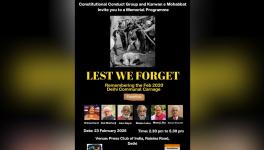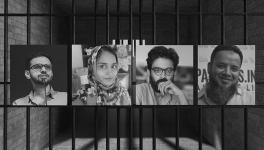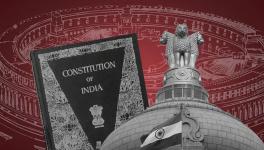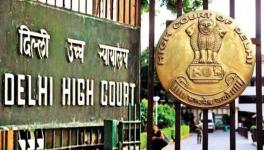Mirchpur Dalit Killings: Delhi HC Convicts 33, Says It's a Reminder of Complete Absence of Equality
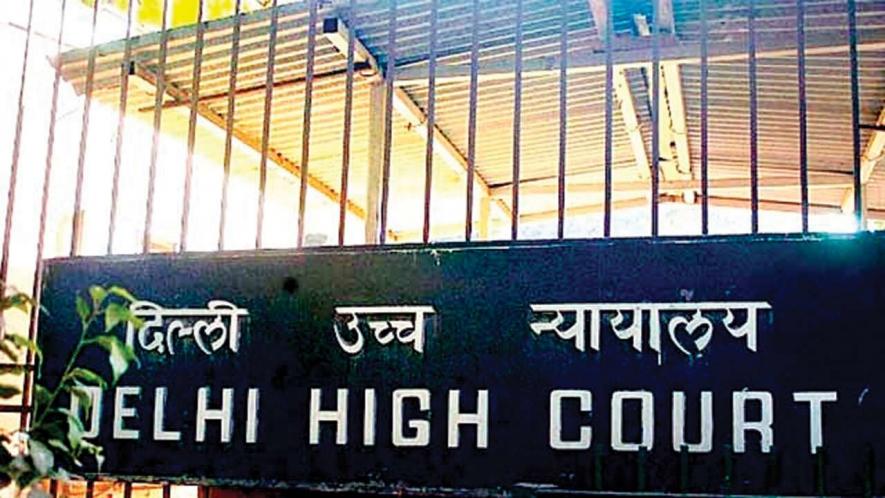
Overturning a trial court's judgement acquitting 82 accused of caste atrocity wherein an elderly father and his physically disabled daughter were burnt to death by Jats at Mirchpur in Haryana in 2010, the Delhi High Court on August 24 convicted 11 accused for life imprisonment, one for three year imprisonment, twelve for two year imprisonment and nine for one year imprisonment.
Out of the 57 accused against whom a criminal appeal was filed by the Human Rights Law Network (HRLN), the court convicted a total of 33 accused under different provisions of the Indian Penal Code (IPC) and the Scheduled Castes and Scheduled Tribes (Prevention of Atrocities) Act, 1989 (SC/ST POA Act).
BRIEF FACTS OF THE CASE
Mirchpur, a village in Hisar district of Haryana, witnessed in the forenoon of April 21, 2010, a riot in which 18 houses owned by members of the Balmiki community (a Dalit community) were burnt by an irate mob of Jats (the dominant community in that village). One 60-year-old man and his differently-abled daughter were set ablaze in the conflagration.
Many Balmikis suffered injuries and their properties were destroyed. Over 200 Balmiki families fled Mirchpur in the aftermath and sought shelter in a farm house of one Ved Pal Tanwar. More than eight years later, many of those who fled are yet to return to their native place.
The trigger for this crime was a seemingly trivial incident that took place on the evening of June 19, 2010, when a dog belonging to a Balmiki resident barked at a group of Jat youth who were returning to their dwelling places through the main thoroughfare of the village.
The criminal case against 98 accused was before the additional sessions judge (ASJ) at Hisar. The ASJ had also framed charges against the 98 accused by an order dated September 6, 2010.
However, pursuant to the order dated December 8, 2010, passed by the Supreme Court of India in a writ petition (criminal) filed by the HRLN on behalf of the victims, the case was transferred to the court of the ASJ at Delhi which was notified as a Special Court under the POA Act and the trial was directed to commence de novo.
Out of the 103 accused sent up for trial, five were juveniles and were tried before the Juvenile Justice Board (JJB) in Hisar. Of the remaining 98, the trial ended with the acquittal of 82 of them and the conviction of the rest 16.
The judgment dated September 24, 2011, passed by the ASJ - II, North-West District, Rohini Courts, convicted and sentenced 15 of the 97 accused who had been charged with offences punishable under the IPC and the POA Act. The remaining 82 accused were cleared of all charges.
The victims challenged the order of the trial court acquitting the 82 accused and also for enhancement of punishment for the 15 convicted persons.
On February 24, 2012, the Delhi High Court issued a notice to the 57 accused. Meanwhile, the 15 accused who were convicted by the trial court also filed a criminal appeal before the High Court challenging the order of their conviction.
After four months of issuing the notice to the 57 accused, the state of NCT of Delhi also filed a criminal appeal challenging the trial court verdict. The High Court issued another notice in this regard on September 6, 2012.
In the appeals, the High Court was concerned with the question of the correctness of the judgment of the trial court dated September 24, 2011, whereby 15 accused were convicted while the remaining 82 accused persons were acquitted of all charges.
In all the criminal appeals, the High Court heard the final arguments at length and reserved its final order on May 16, 2018.
While dismissing all 15 appeals filed by the accused, the bench of Justice S. Murlidhar and Justice I.S. Mehta reversed the order of the trial court and convicted 20 accused previously acquitted by the lower court for various offences under IPC and the SC/ST POA Act while upholding 21 acquittals. The conviction of the 13 convicted earlier was upheld and, in certain aspects, enhanced.
While delivering final judgement, the High Court opined that the trial court indulged in "conjectures and surmises", adding, "This was an act of deliberate targeting of the Balmiki houses by the Jat community mob and setting them on fire in a pre-planned and carefully orchestrated manner. The entire evidence, if read carefully, more than adequately demonstrates that there was a large scale conspiracy hatched by members of the Jat community to teach the Balmikis a lesson and pursuant to that conspiracy, houses of the Balmiki community were set on fire."
The judges also took note and made an observation regarding the rehabilitation of 254 families of the Balmiki community who had to flee Mirchpur as a result of the violence. It noted those who decided to stay back at Mirchpur village did not support the prosecution in the present criminal trial, and it was only those who decided not to return who did participate.
It further noted that while the Government of Haryana has sought to rehabilitate the displaced families, it is not in Mirchpur but in a separate township.
"The question is whether this accords with the constitutional promise of equality, social justice and fraternity assuring the dignity of the individual,” it observed.
Talking about the still continuing instances of atrocities against the scheduled castes by those belonging to dominant castes, despite 71 years having passed since independence, the court observed that this was evidence of the lack of equality and fraternity in the Indian society.
“71 years after Independence, instances of atrocities against Scheduled Castes by those belonging to dominant castes have shown no sign of abating. The incidents that took place in Mirchpur between 19th and 21st April 2010, serve as yet another grim reminder of ‘the complete absence of two things in Indian society’ as noted by Dr. B.R. Ambedkar when he tabled the final draft of the Constitution of India before the Constituent Assembly on 25th November 1949. One was ‘equality’ and the other, ‘fraternity’,” the court observed.
Get the latest reports & analysis with people's perspective on Protests, movements & deep analytical videos, discussions of the current affairs in your Telegram app. Subscribe to NewsClick's Telegram channel & get Real-Time updates on stories, as they get published on our website.









